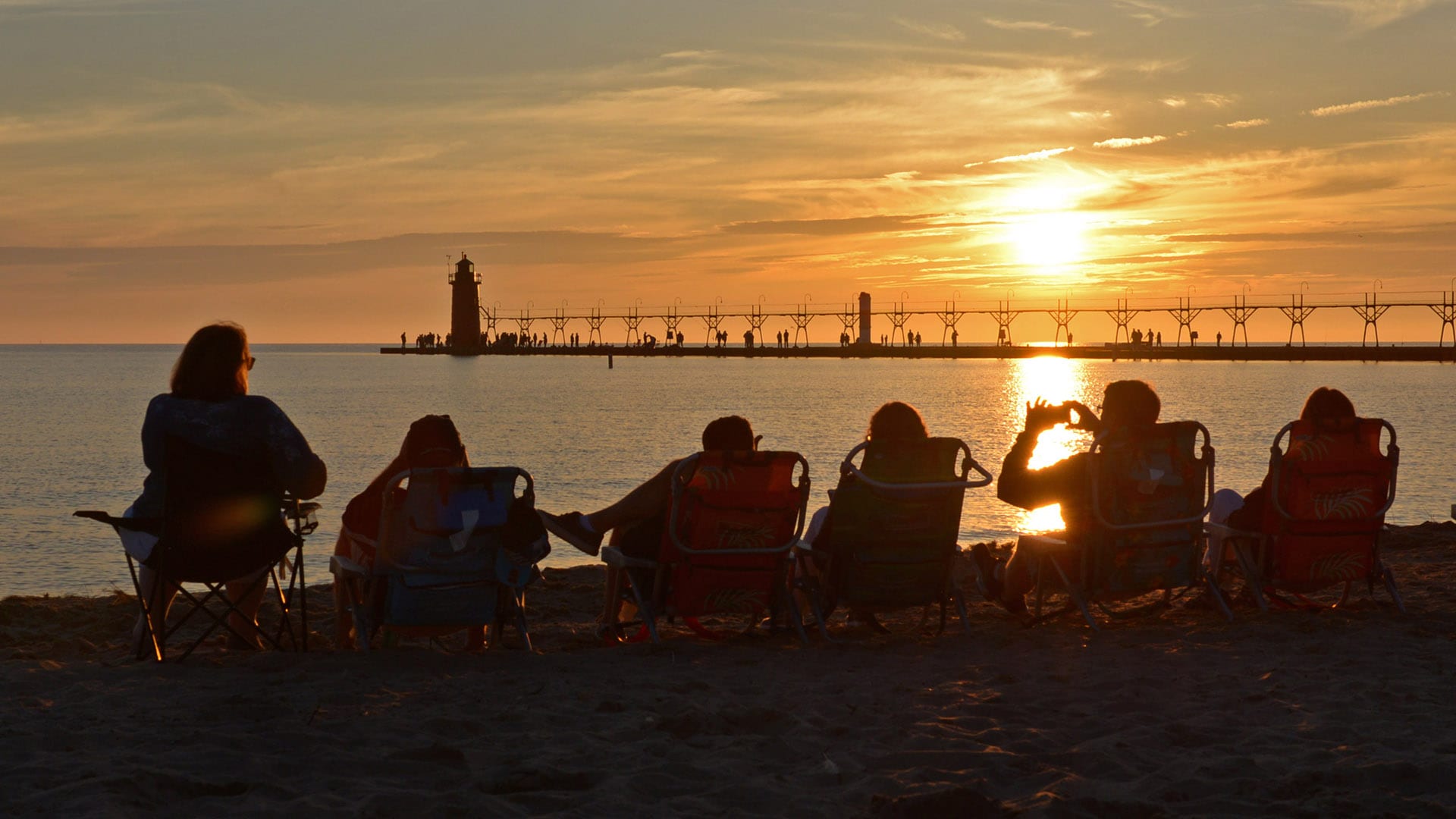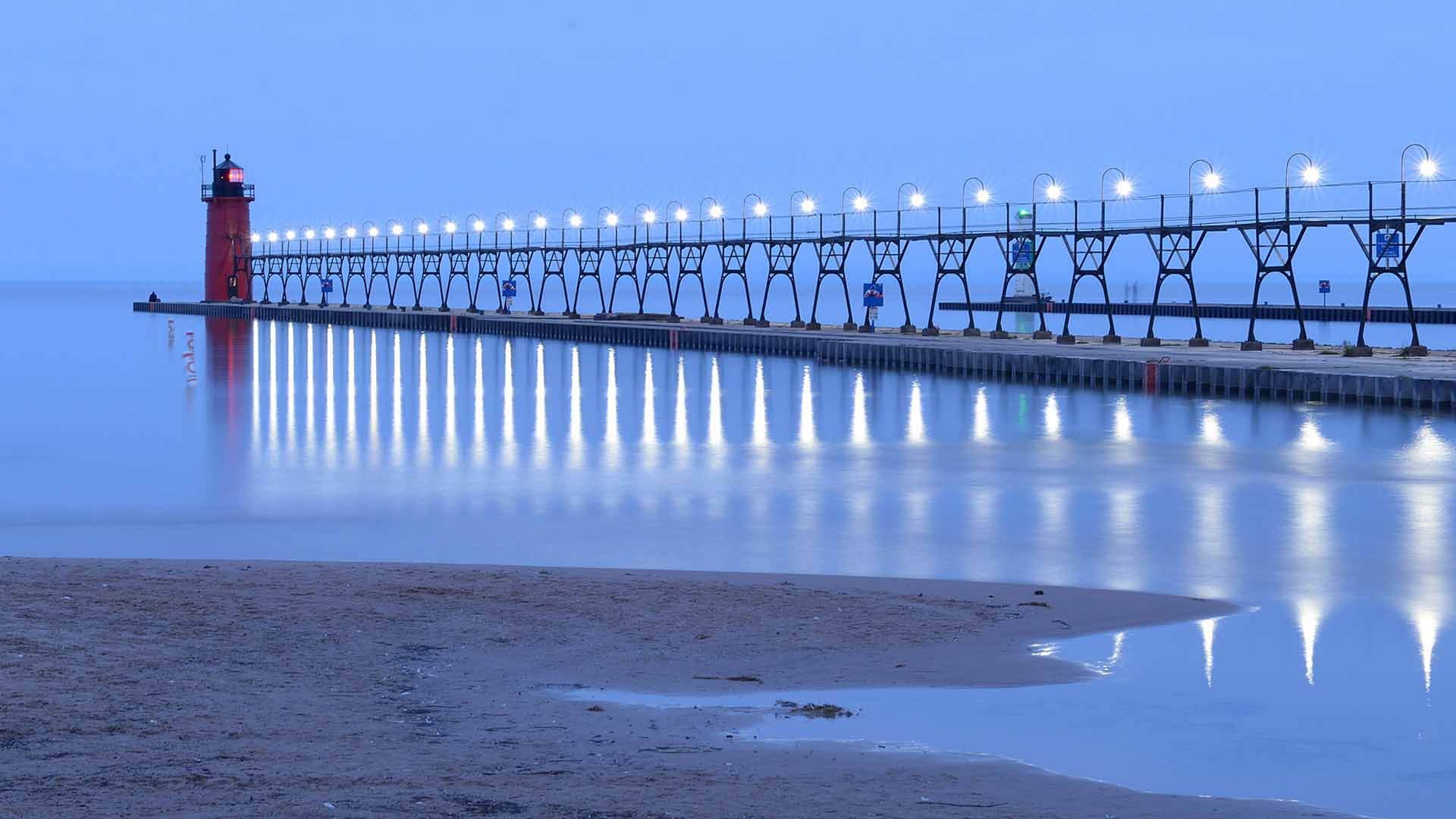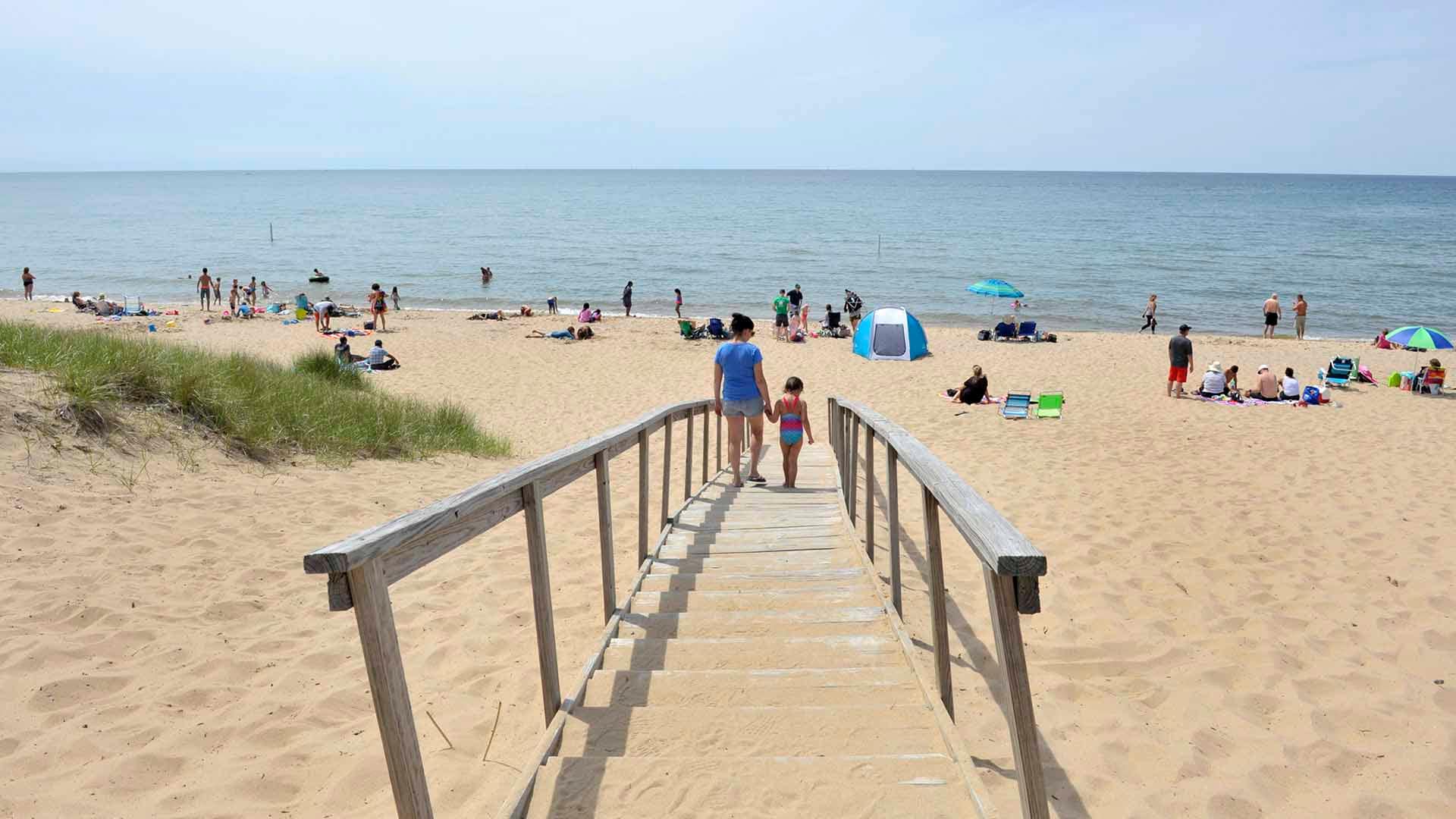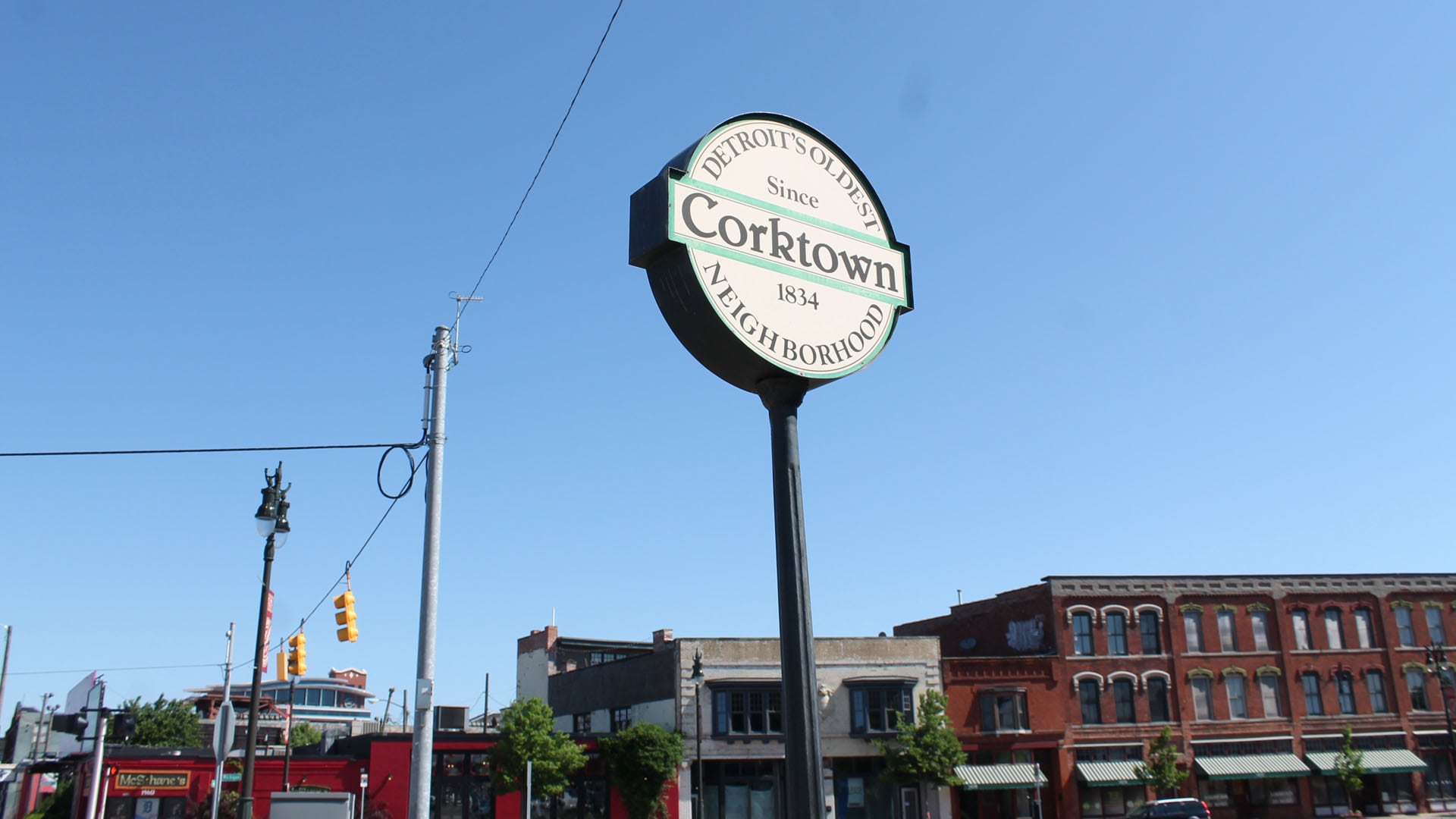Corktown Area of Detroit Rejuvenates
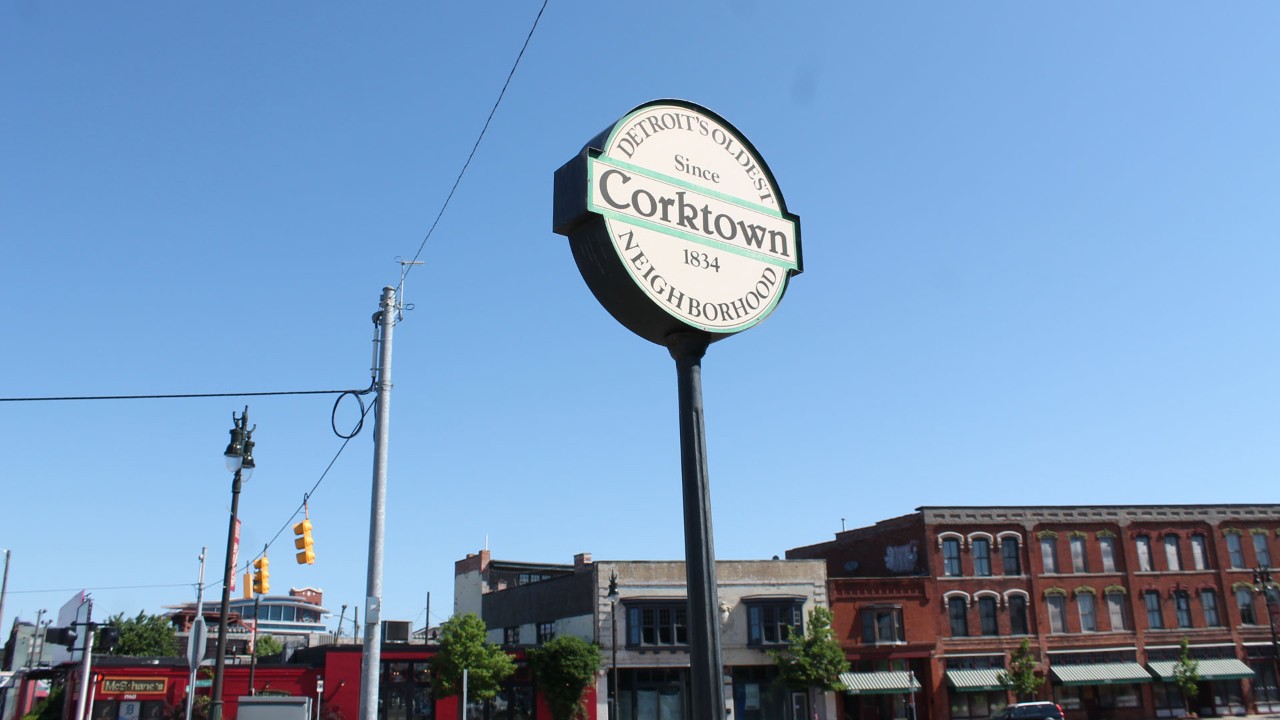
The Corktown sign is unmistakable.
Story and photos by Alicia Kennedy
Alicia Kennedy is Brooklyn-based writer.
Rise of food and culture scene fills void left by loss of stadium.
While driving down the highway toward the metro area, I notice that Michigan is unambiguously lush and verdant, offering flowers and tall grasses — a grand departure from the New York City from which I’ve arrived. As a spacious city built of distinct neighborhoods, there are also large green spaces once you come upon its oldest neighborhood: Corktown.
This neighborhood — whose every lamp post has a flag saying it was established in 1834 — is west of downtown Detroit, where a row of brick structures acting as main street on Michigan Avenue live in the shadow of its massive, silver buildings. The name comes from the large number of Irish settlers from County Cork who relocated to the area following the Irish Potato Famine, and the neighborhood was once defined by Tiger Stadium and its surrounding bars. But the stadium moved in 1999 and was demolished 10 years later.
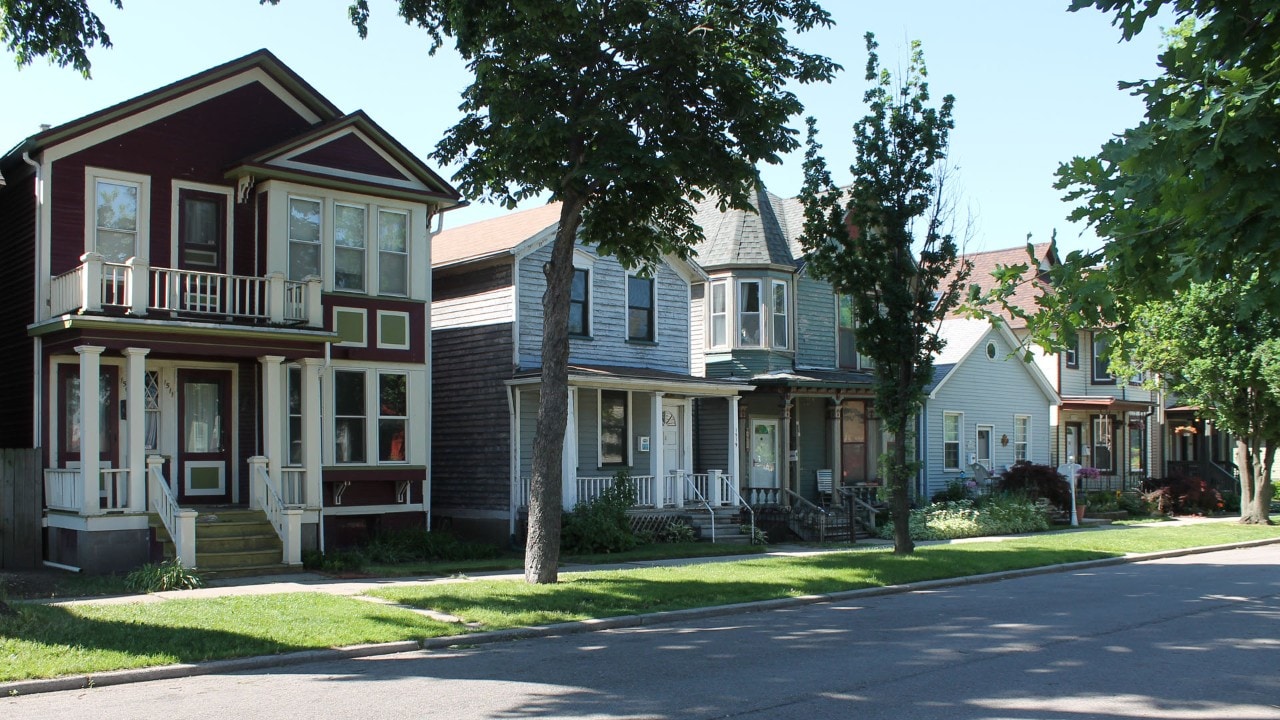
Corktown houses.
In February 2016, though, it was announced that the Detroit Police Athletic League would develop their new headquarters and youth facility there. This was after Corktown’s cultural revitalization began. Since Slows Bar BQ dared to open in 2005 and its incredible success followed, more and more restaurants, shops, music venues, and art galleries have decided to call the neighborhood home.
Despite all the new businesses opening, Corktown is a relaxed place defined by its beautiful residential houses and the commitment of its residents to making it both a destination and a happy place to live.
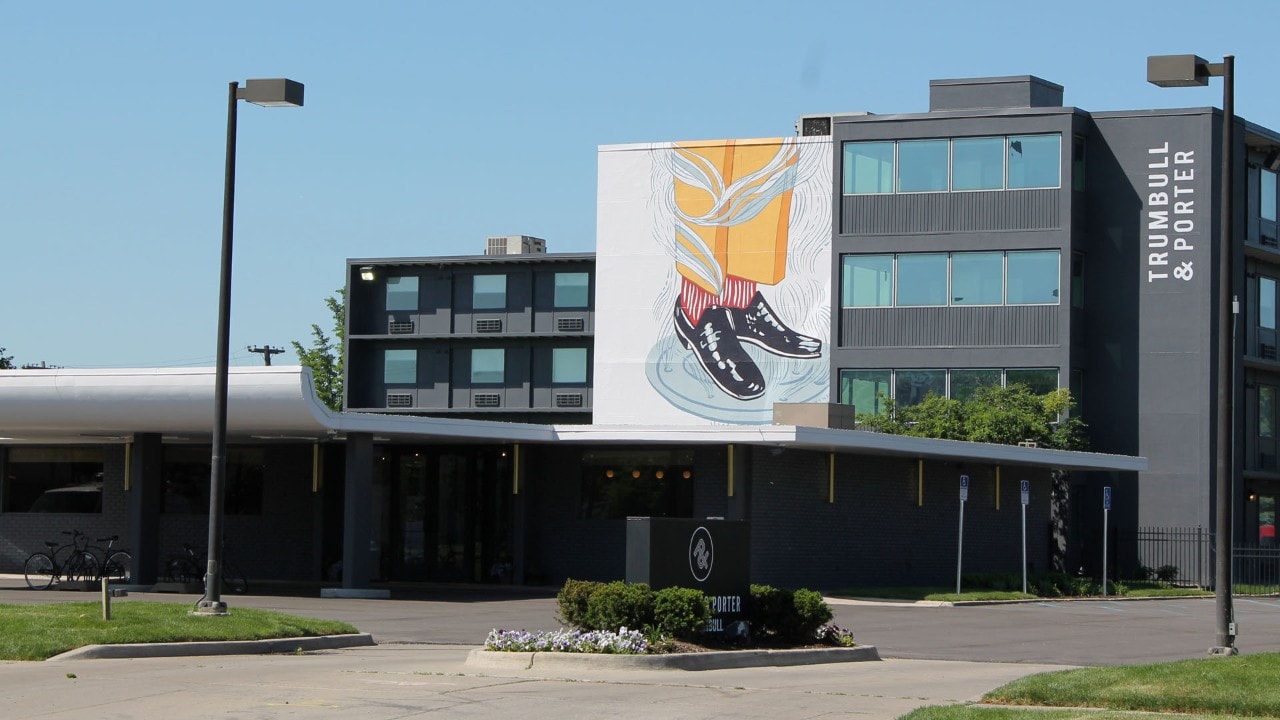
Trumbull & Porter is a new boutique hotel featuring the work of local artists.
As a visitor, you’ll want to stay at the very newly renovated Trumbull & Porter Hotel. It was once a Holiday Inn before becoming Corktown Inn, which had a pretty seedy reputation; now the rooms are all incredibly contemporary and minimalist — bright, white, and decorated with the artwork of locals. A huge mural by artist Don Kilpatrick is a can’t-miss sight, depicting a well-dressed man standing over a steamy manhole, complete with a quote by the Detroit poet David Blair: “I stay, even when I go” — a way of saying that the city becomes a part of you. Bikes are available to rent from the local shop Detroit Bikes, and locally roasted coffee is in the lobby.
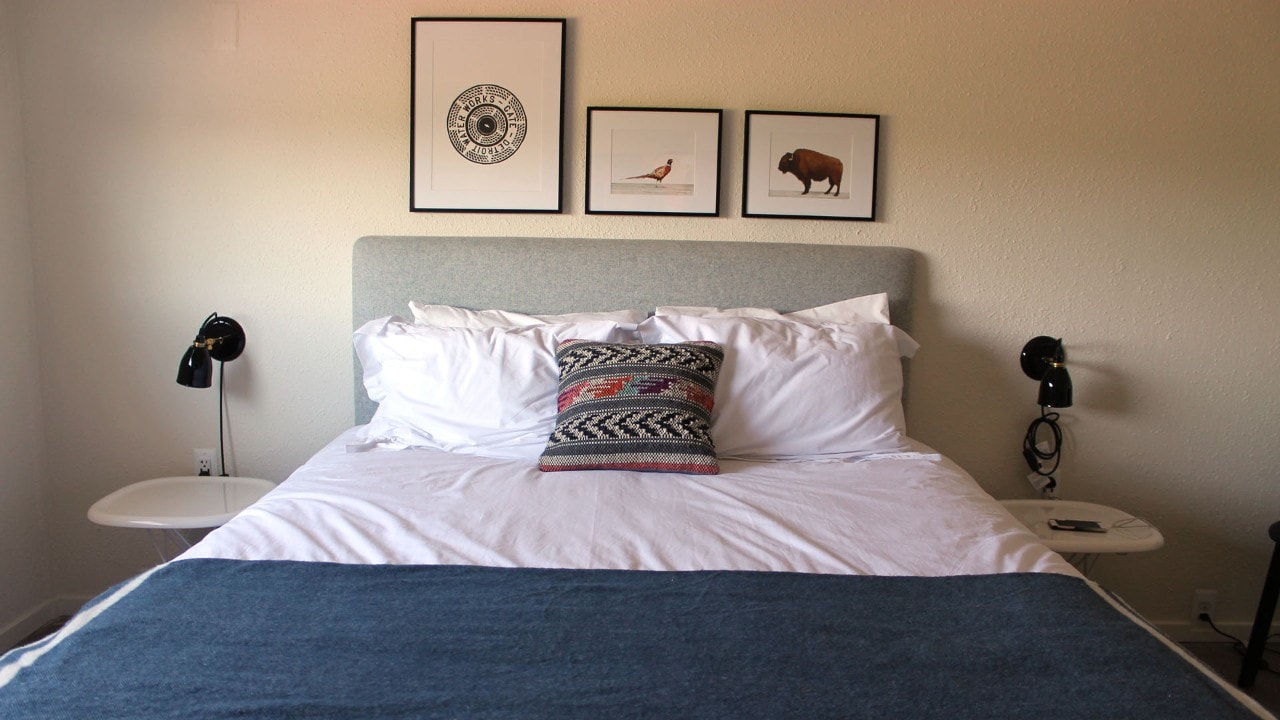
Trumbull & Porter Hotel
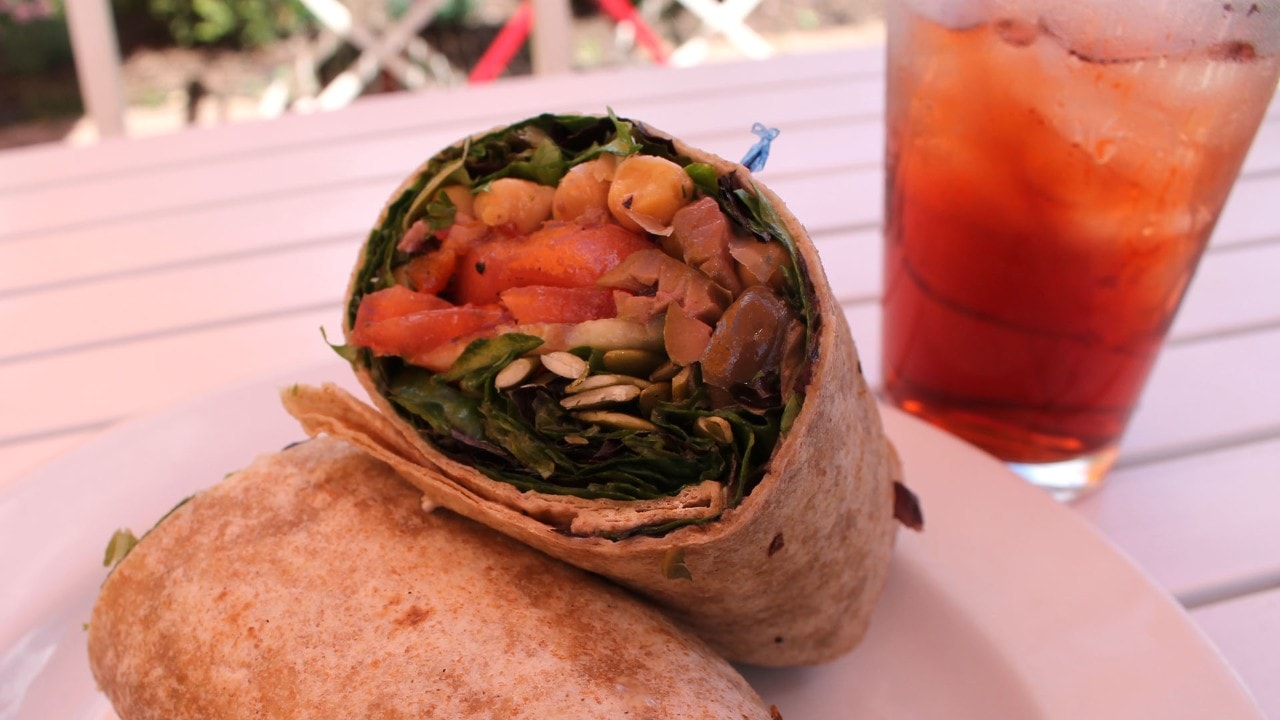
Mudgie’s serves sandwiches and wraps, with great vegetarian options.
The hotel is a fitting tribute to the neighborhood’s rebuilding, a large, refurbished structure that’s just a block from restaurants like Le Petit Zinc and Mudgie’s Deli, across the street from Batch Brewing, a few blocks from an indie record shop and bookstore. Next door, the Detroit Hispanic Development Center is where young people in the community come to learn how to build robots, paint graffiti and run a café. It’s the perfect home base, from where you can experience the city’s blooming.
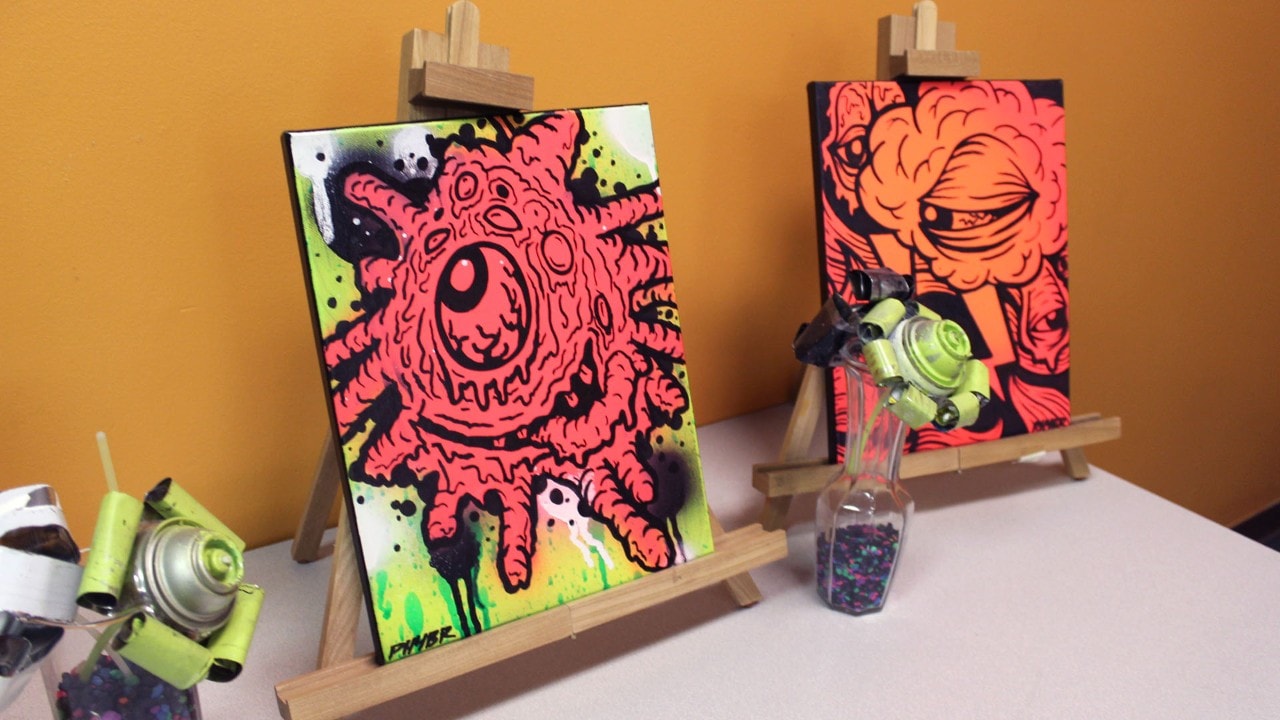
Kids' artwork in a youth center.
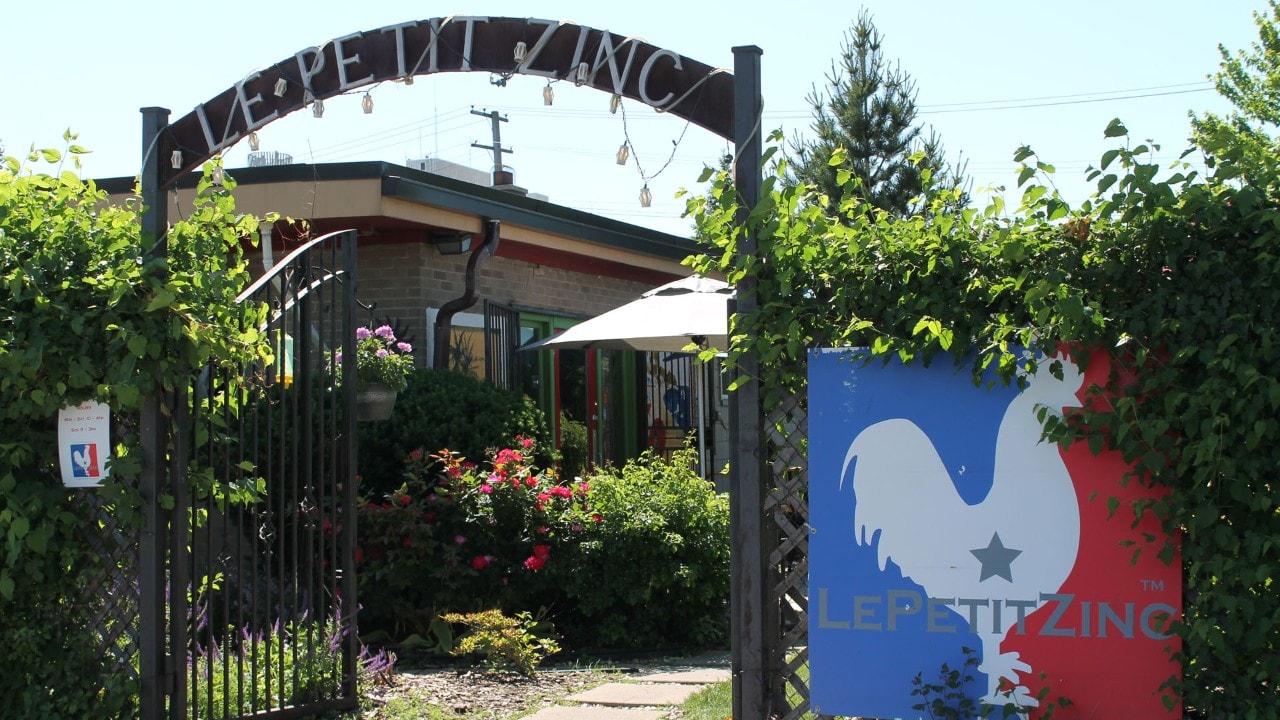
Le Petit Zinc is a quiet French bistro where you can escape the city.
Dining Out
You won’t go hungry in Corktown. Between the quiet calm of French creperie Le Petit Zinc, to the famous Mudgie’s Deli, the funky Katoi, there’s almost too much to try in the small neighborhood.
Start at Le Petit Zinc, where the crêpes can be made vegan or gluten-free. It has a secluded garden filled with flowers that makes you forget you’re even in a city. Karima Sorel, a Detroit native who spent time running restaurants abroad in Brazil and in New York City, moved back to the city in 2009. Her family had bought the building where Le Petit Zinc is located in the early 2000s, moving their Michigan Citizen newspaper operation there. The newspaper only took up half the space, so they invited Sorel to move back and open the café. The only place open at the time was Slows and Mudgie’s had just opened, and partner Scott Rutterbush tells me they wanted to create something “really approachable, sophisticated but accessible,” which was missing.
“For a period of time, there wasn’t a lot of development or things happening,” Rutterbush says. He notes that the move of the Tigers Stadium pushed a lot of activity from Corktown, but as there has been more interest in living in the city, Corktown has emerged as the ideal neighborhood. “It’s not downtown, but there is commerce, there is activity,” he says. “You can come over and here and kind of get away, but you’re still in the city.”
As he talks about everything that’s been opening up — the restaurants, distillery, breweries — and becomes audibly excited about how the neighborhood is coming into its own. “That’s what makes Detroit really unique right now: You have all these blue-collar businesses with what I call moxie,” he says.
Rutterbush believes when you come to Corktown, you’re not going to see a chain restaurant. "They’re all independently owned and operated by people who put their feet in the ground and said, ‘We’re gonna open a business. We’re gonna make it work,’” he says.
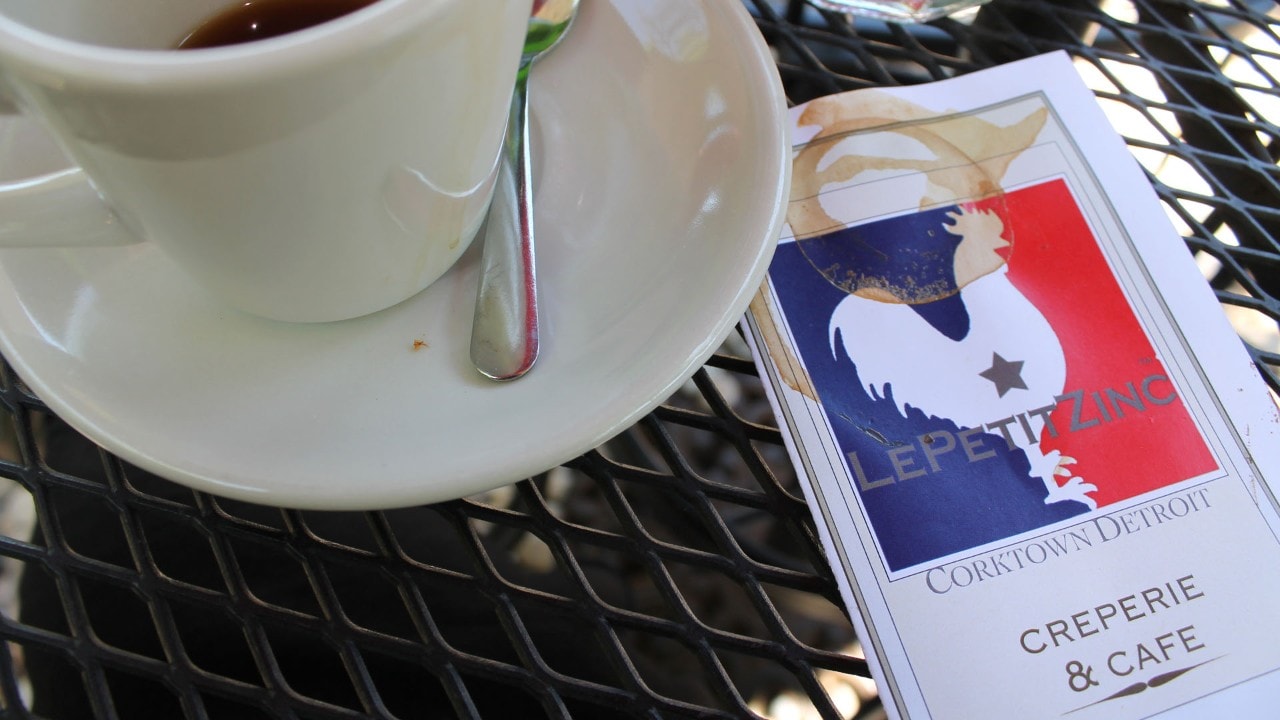
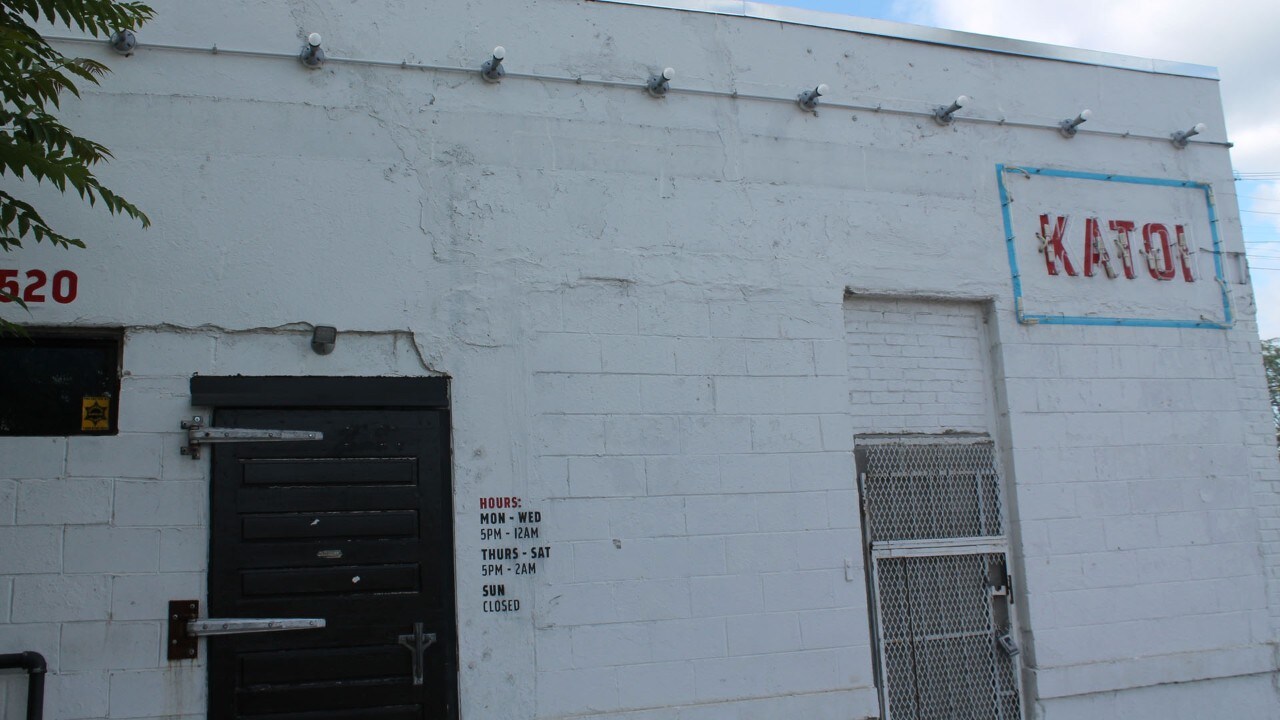
Katoi is a Thai restaurant.
One of the most incredible examples of this moxie he’s talking about is Katoi, the absolute must-visit dinner spot in the neighborhood. The three-person team behind it calls the restaurant the “mothership,” and you definitely feel like you’ve stepped into another world when you walk through the doors of the unassuming white building a bit farther down Michigan Avenue than the historic strip. It began as a food truck over two years ago in the parking lot of nearby distillery Two James. “They said if we got a truck, we could be the food component,” Director of Experience and Sensation for the restaurant Courtney Henriette tells me over coffee at Astro. “We didn’t have a business plan; we were just serving dinner five nights a week. It was really chaotic. We’d take the dishes home every night to wash them,” she says. “It absolutely made no sense, then my friend who’d purchased this building said we should take the really good momentum of Katoi across the street [from Two James].” Thus, the mothership was born.
Katoi the restaurant opened to the public in March 2016, with chef Brad Greenhill serving his take on Thai cuisine — larb tofu, drunken noodles — in a futuristic, colorful setting that’s basically daring you not to have fun. The cocktails can’t be missed, either, with some on draft like the Promises in Vortex, which features cilantro-infused tequila and Thai chile simple syrup.
“The great thing about Detroit is that we’ve built up a community,” Henriette says. “In many ways, what I like about this neighborhood is that there are a lot of other small businesses owned by people that have integrity.” As you move between the restaurants, bars, and shops during your Corktown stay, that community becomes palpable.
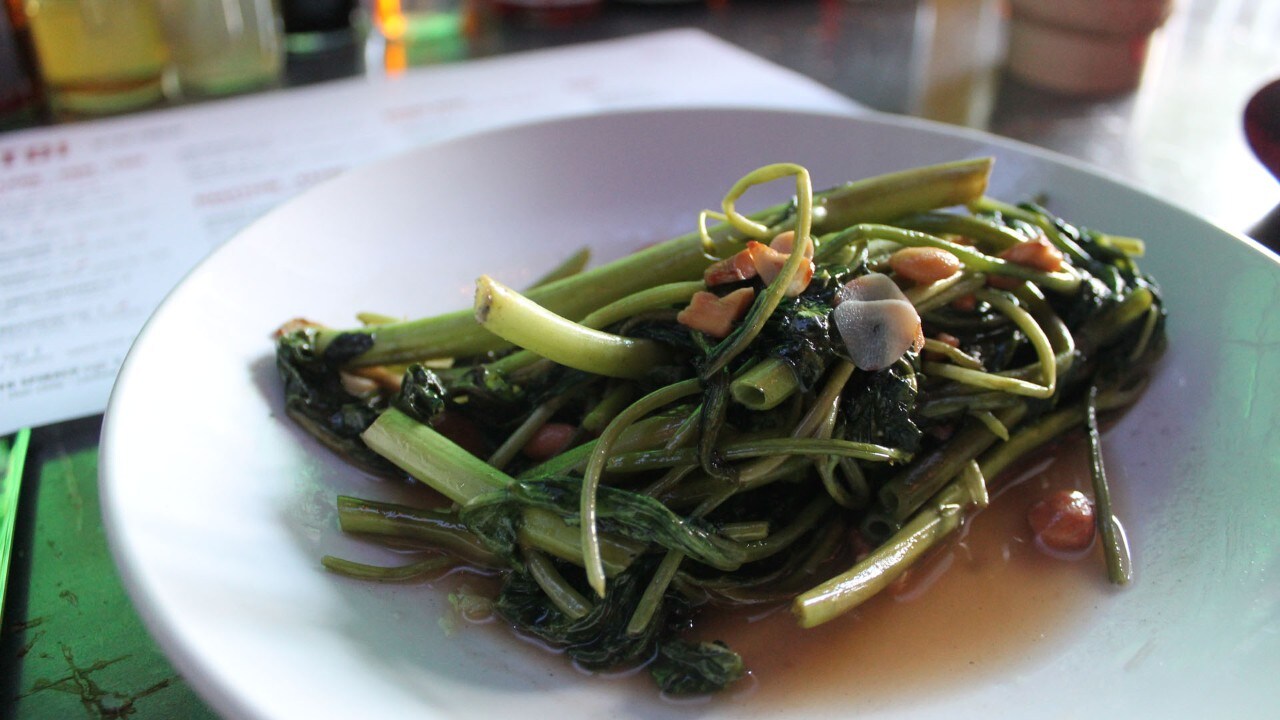
The amazing larb tofu.
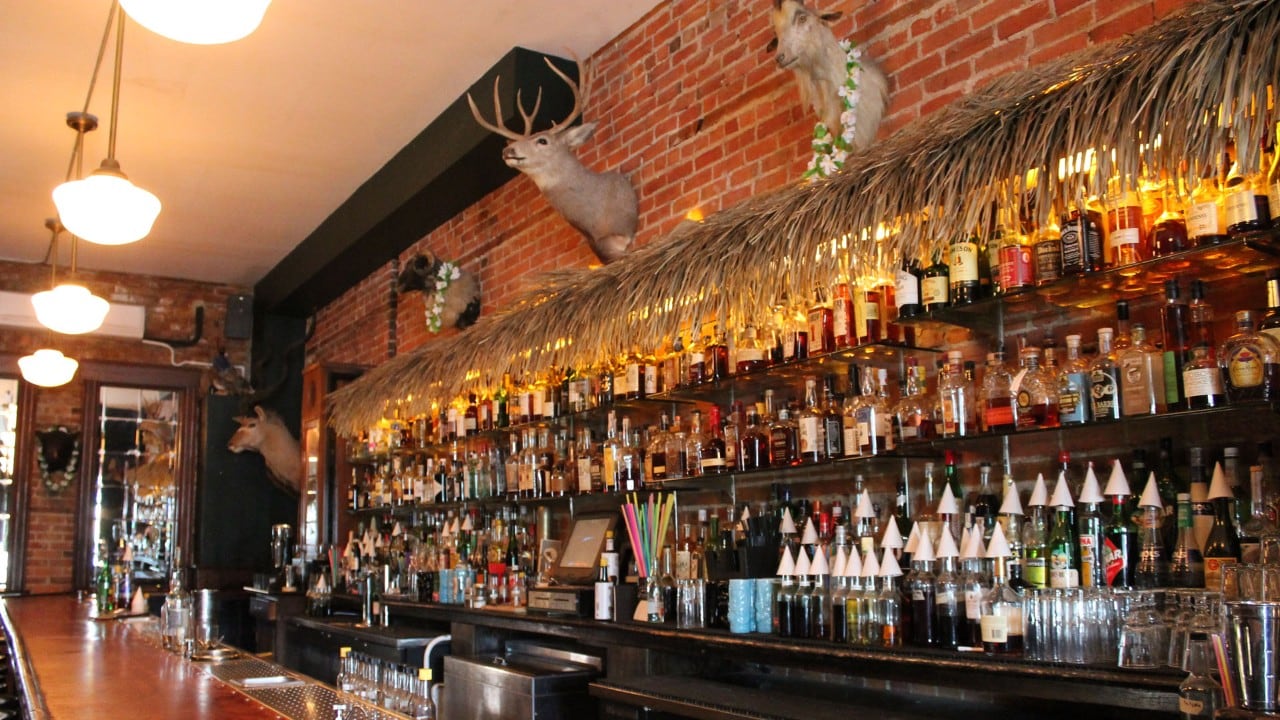
This craft cocktail bar inspired the whole city to up its drinking game.
Drinking
If Corktown’s legacy as the former home to Tiger Stadium is that it’s the neighborhood for drinking, it’s doing that reputation proud. There are still the Irish pubs and sports bars dotting the area surrounding the demolished ex-baseball field, but where Corktown is truly succeeding is in its craft cocktails, spirits and brews. You’ll want to savor these creative libations.
It started with Sugar House, owned by Dave Kwiatkowski. According to him, the city “demanded” a cocktail bar of the caliber every big city in the world now sees as standard, so he opened up shop in October 2011. The bar, which adjusts its signage to match a special menu every season, is looking toward its five-year anniversary. Jason Leinart, who began bar-backing there two years ago and worked his way up to bar manager, says that in metro Detroit and the city as a whole, “Sugar House has served to educate people, and their tastes and preferences have become more sophisticated.” There are no other dedicated cocktail bars in the area, but the success of Sugar House has made it so having a bar program is a necessary business decision.
The menu is based on a foundation of 101 classic cocktails, mainly Prohibition and pre-Prohibition, as well as a rotating seasonal menu. For the warmer weather, they’ve been serving tiki drinks; Detroit doesn’t have a rum bar, so it’s providing a way, Leinart says, “for people to get their feet wet with the concept.” Another recent seasonal menu was inspired by Bill Murray movies, showing they’re not one of those mixology bars where you have to worry about snarls from the bartenders. Pretension is at a minimum; quality and pleasure are the focus.
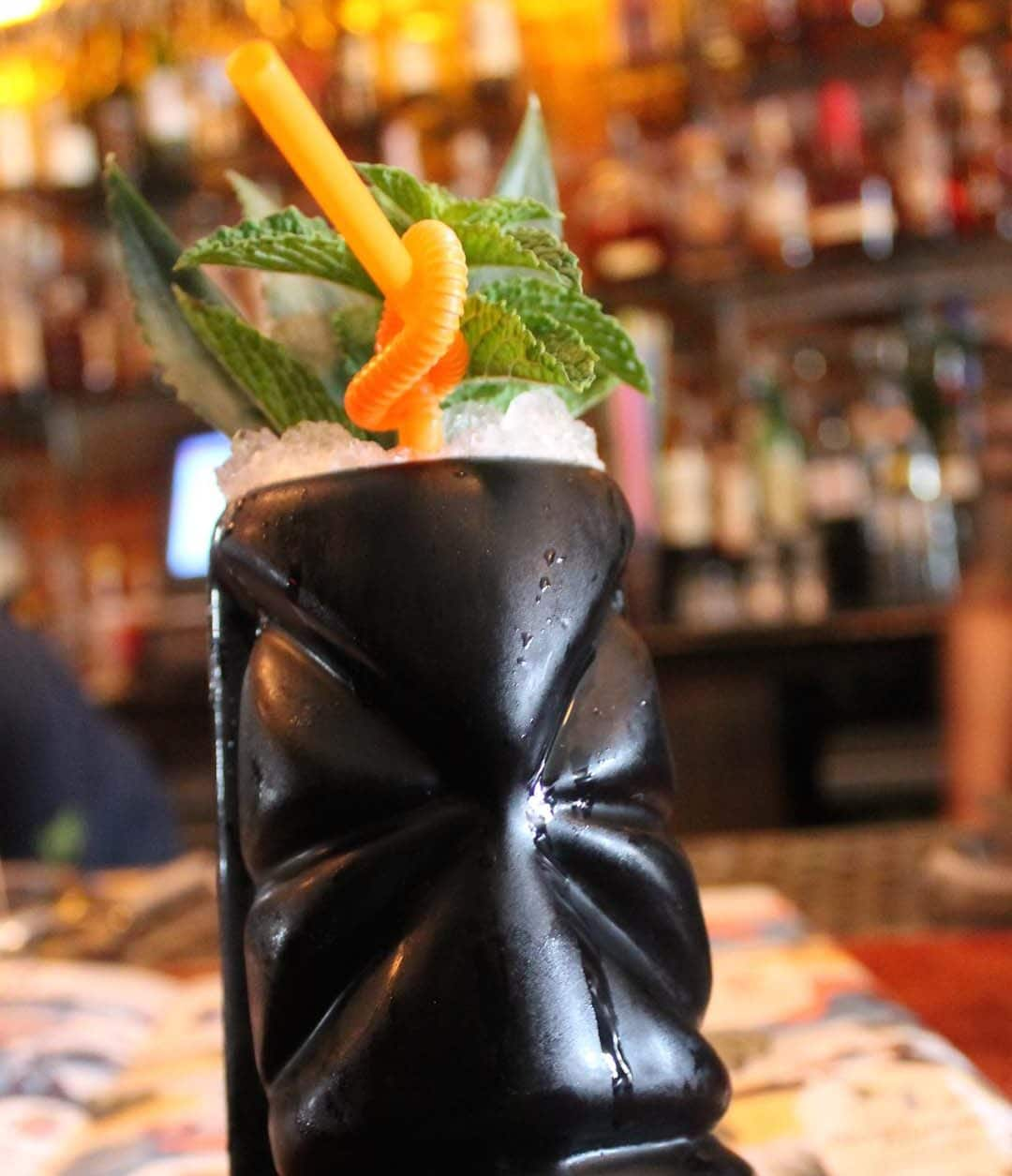
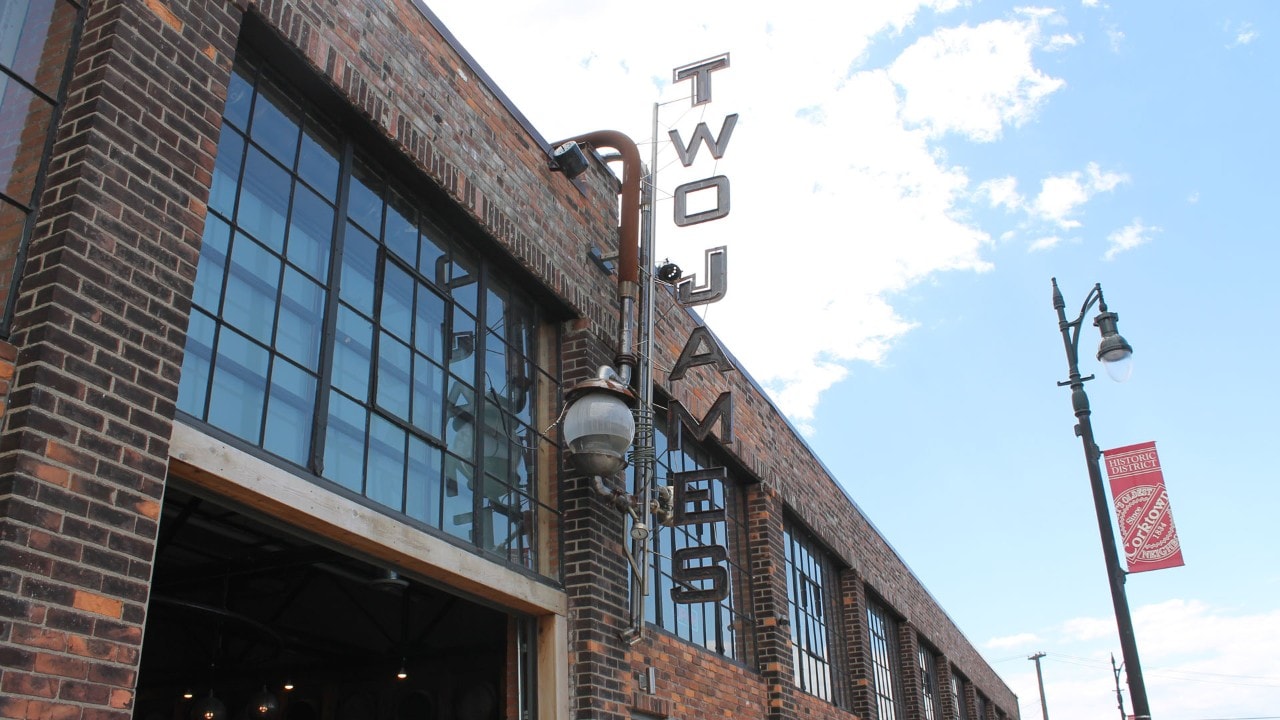
The excellent whiskey is used in drinks served around the neighborhood.
That focus is evident in the spirits of nearby Two James Spirits, the first licensed distillery in the state since Prohibition. They make their spirits — gin, vodka, bourbon, whiskey and absinthe — in small batches, choosing to put Michigan’s agricultural abundance at the forefront by using locally sourced ingredients. Though they only opened in 2013, they’re already an integral part of Corktown: the spirits are on cocktail menus; its inviting tasting room is the perfect place to try all their products, either in flights or house drinks; and taking a tour is a brilliant way to spend an afternoon.
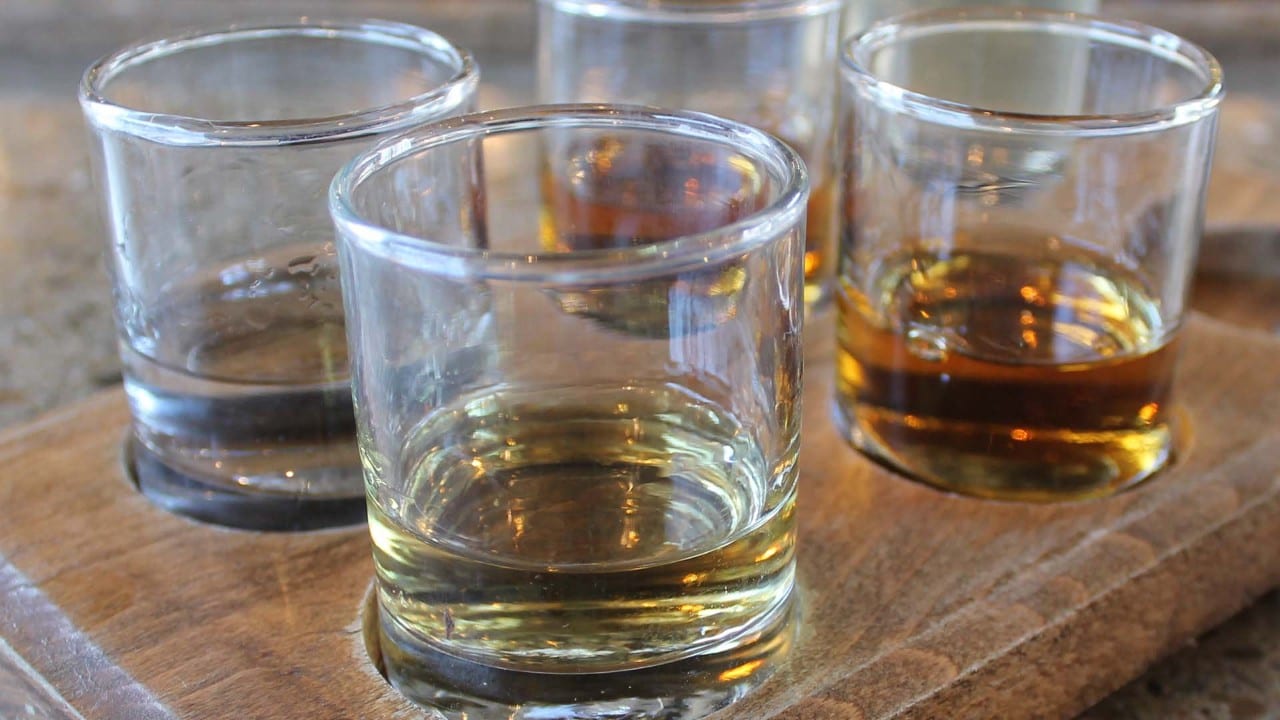
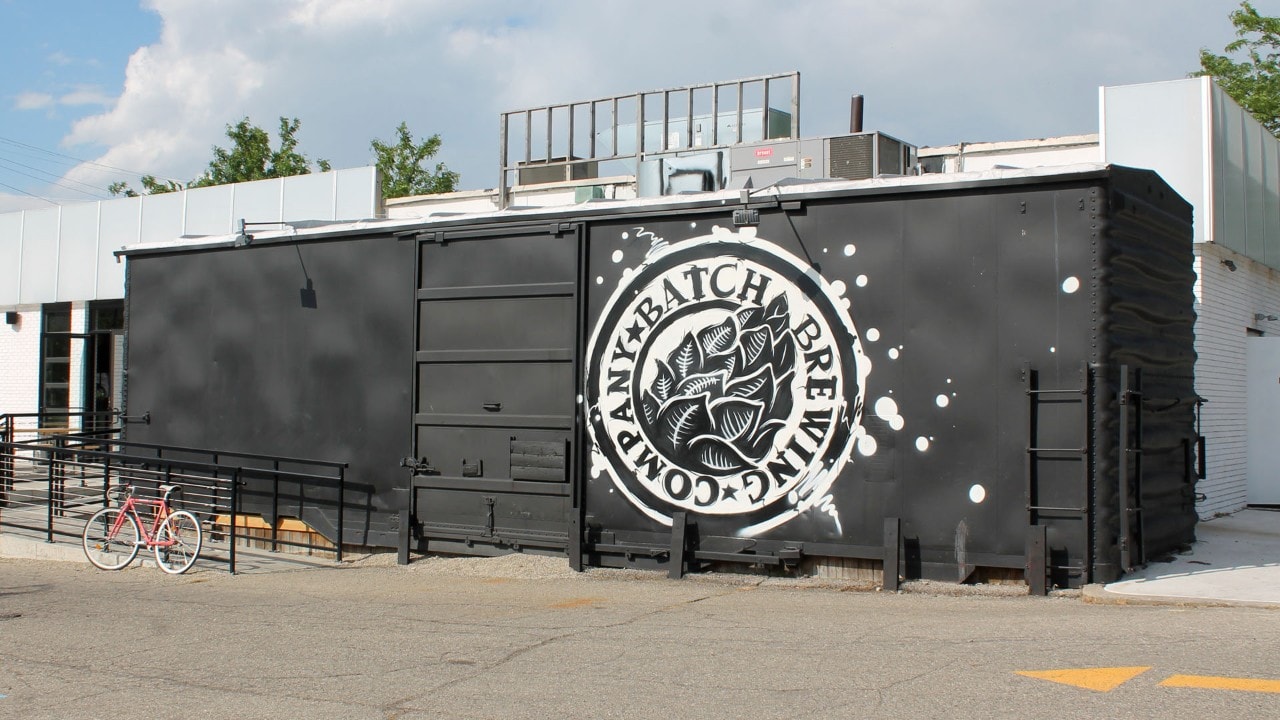
The exterior of Batch Brewing.
If you’re more of a beer person, Batch Brewing is a key spot to visit. Their outdoor seating makes for a great place to enjoy an afternoon brew, and their list has something for everyone. Whether you want a saison, a sour or a fruity IPA, you can enjoy it along with some of their food. (House-made soft pretzels served with super-spicy mustard don’t disappoint.) For the wine aficionados, Corktown also has Motor City Wine, a shop where you can also sip glasses outdoors while enjoying cheese and charcuterie.
For a neighborhood that only got a dedicated craft cocktail bar just about five years ago, Corktown has emerged as a drinking destination, regardless of your preferred poison.
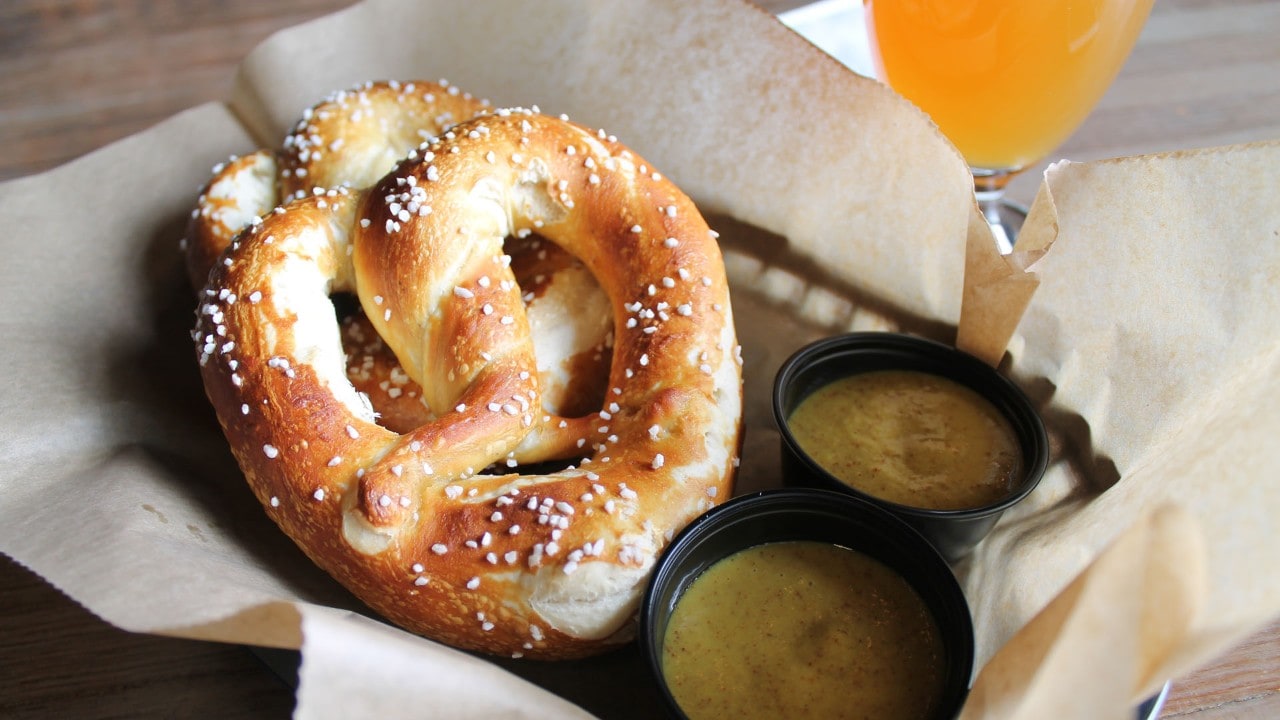
Soft pretzels at Batch Brewing.
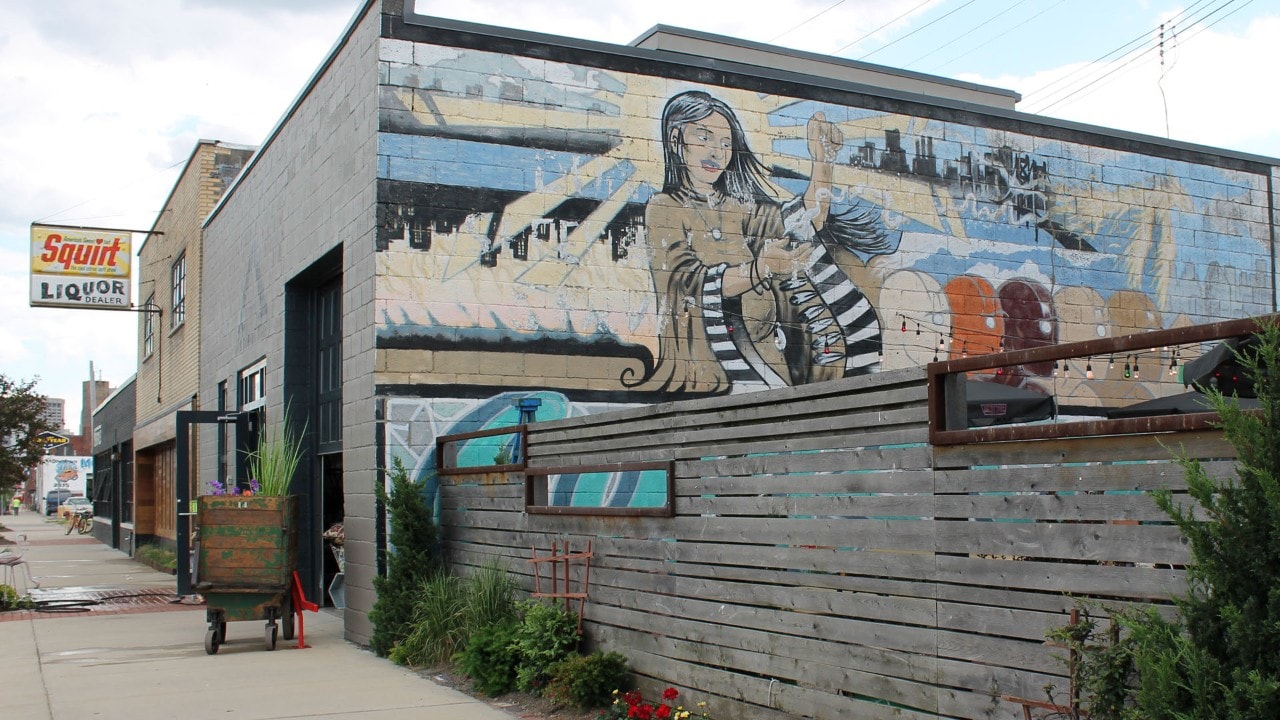
A mural on the main drag.
Culture
While a neighborhood is nothing without food and drink, a culture cannot thrive on those alone. Luckily, Corktown also has shops and art galleries that have become community anchors, offering everything from poetry to art books, from vintage clothing to locally made toiletries, from studio space for artists to a gallery. There’s a small but flourishing scene for those who want to support the local businesses that are providing a foundation upon which more shops and galleries are sure to grow.
The book shop and publishing house DittoDitto, which also hosts events and runs the Detroit Art Book Fair, is just a short walk from the Trumbull & Porter Hotel. This current location opened in 2014, after having a small location within a café called Trinosophes in the city’s Eastern Market neighborhood. “Detroit has a pretty strong history of independent publishing, through the ‘60s, ‘70s, ‘80s, and into the ‘90s,” co-owner Maia Asshaq tells me. Its location next to a small record shop has helped the business work, making it an easy one-stop corner for those with overlapping music and literary interests. “The people who live in the neighborhood have been really sweet to me,” Asshaq notes, though it’s the only shop of its kind in Corktown (Detroit has a few more independent book shops in other areas). Its poetry selection is particularly robust, with a focus on the city’s own poets.
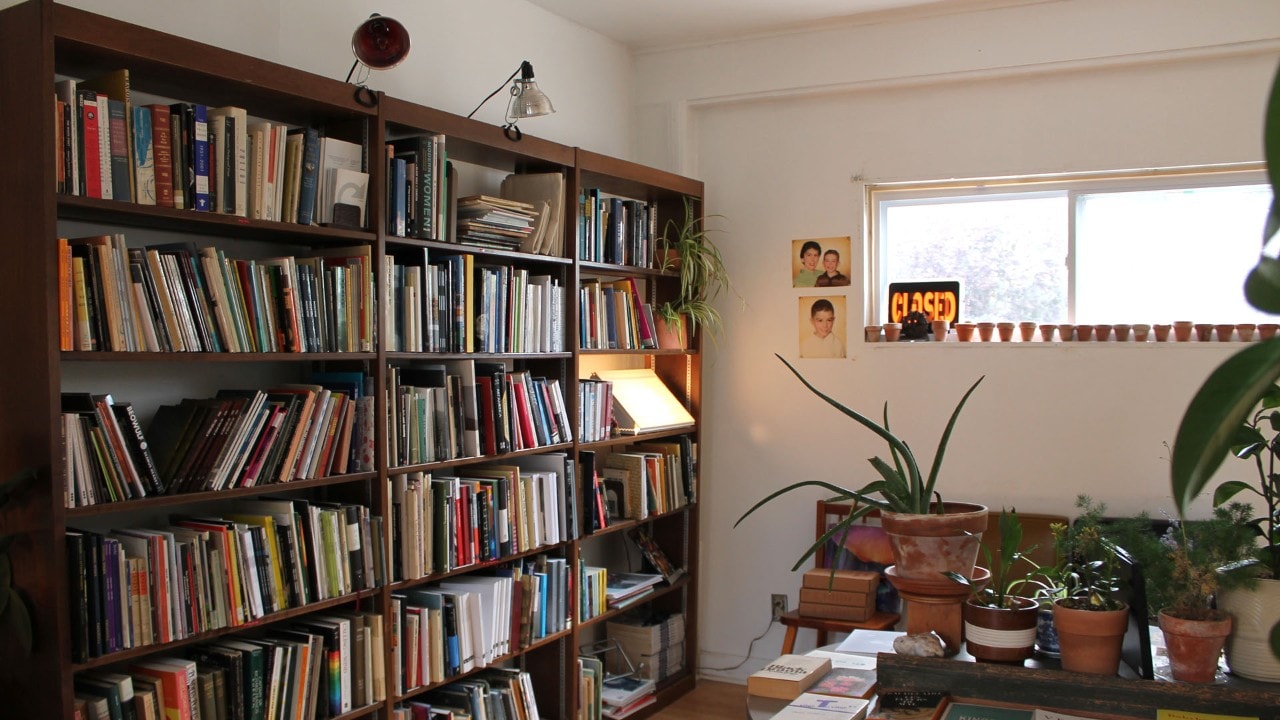
DittoDitto.
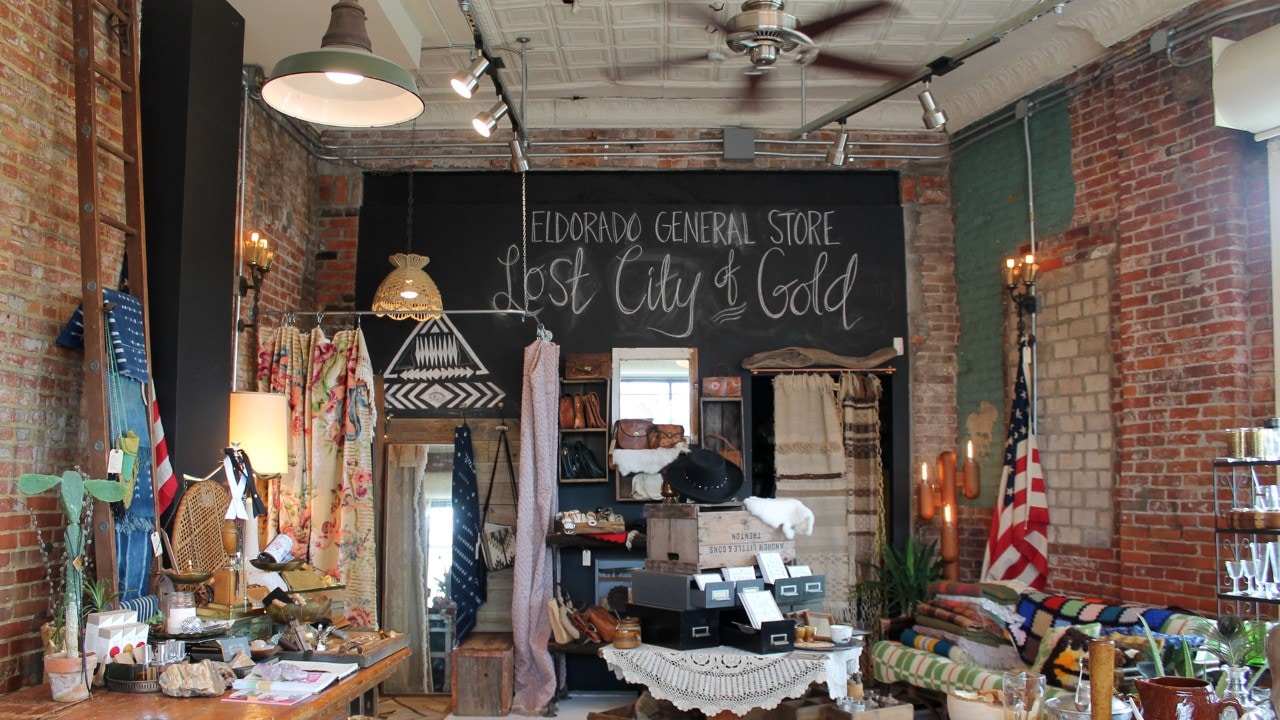
Eldorado General Store stocks vintage clothes, local jewelry, and more.
After browsing the shelves there, you’ll need to stop into the big, magical Eldorado General Store owned by Erin Gavle. The space is overflowing with her vintage clothing finds for both men and women, as well as independently designed items. Gavle, who grew up outside the city, moved back to Detroit after five years working in advertising in New York City and opened the shop two years ago. “It started out pretty much all vintage, but I’ve really worked hard to incorporate local artists,” she says. “In my second year, I was focused on filling in the gaps between what I can find locally and what I can buy either made in the U.S. or fair trade — something with a bigger purpose behind them.”
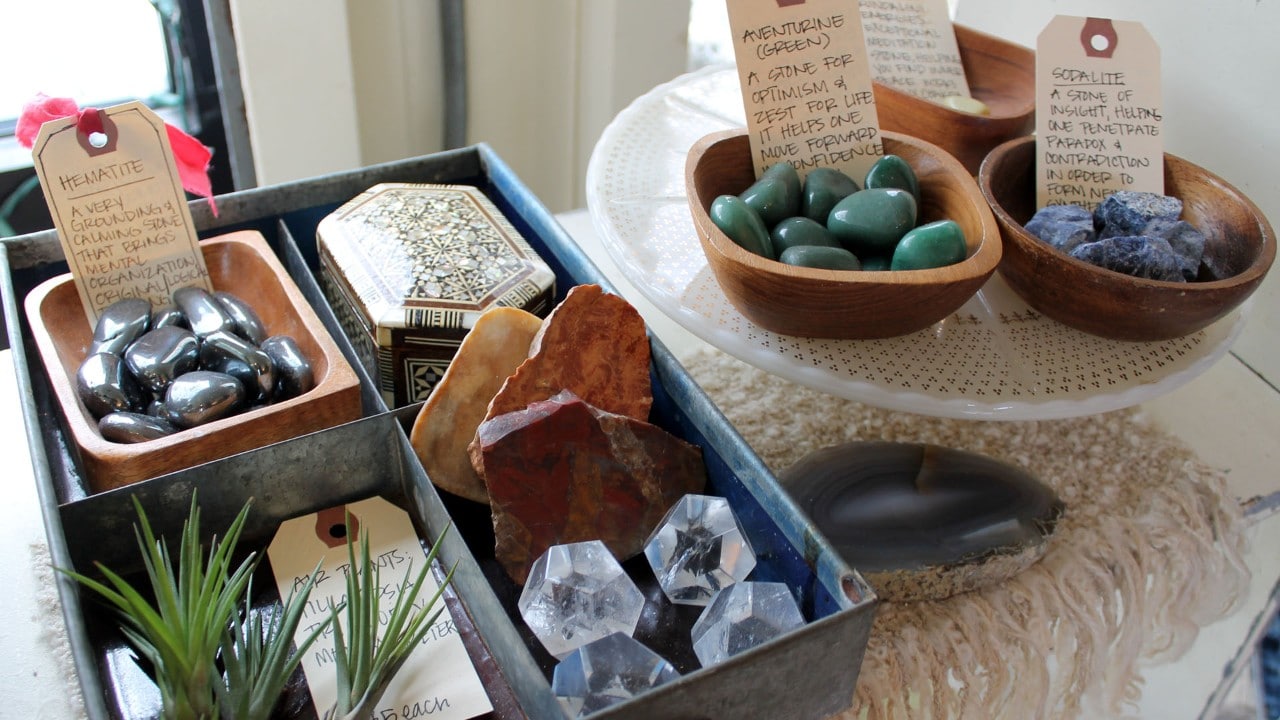
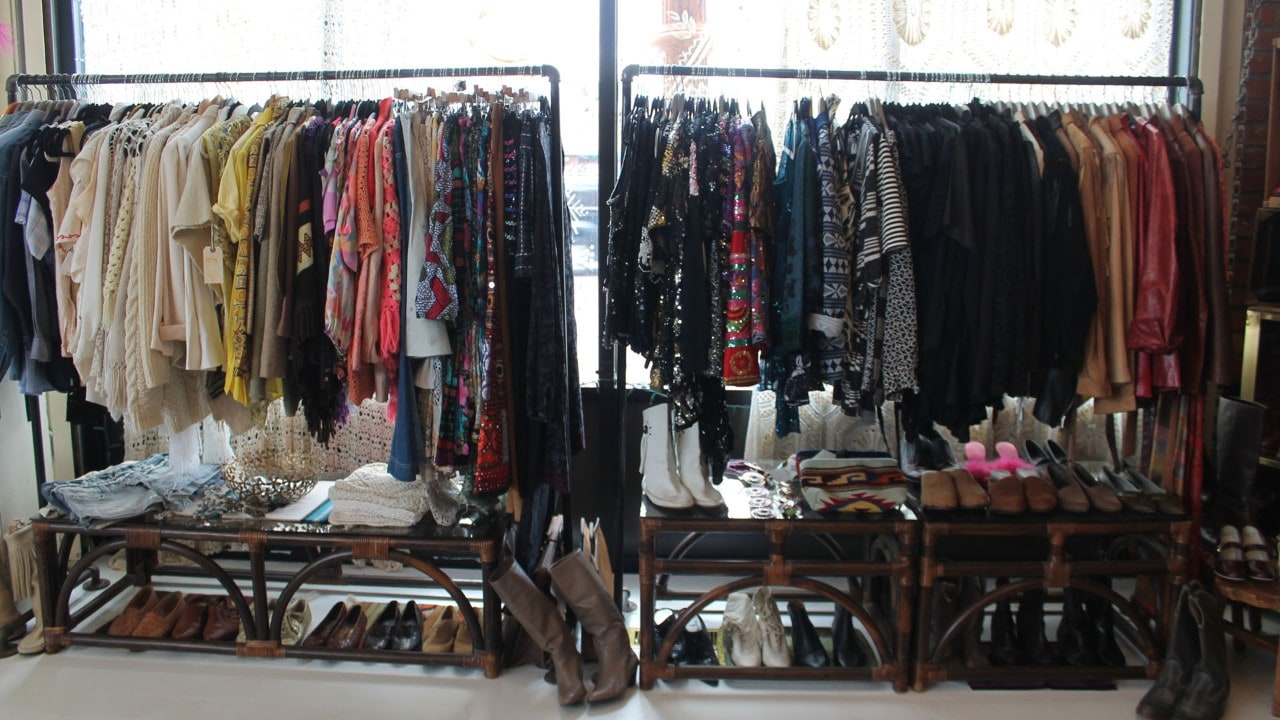
Eldorado.
Gavle wants to counter the pervasive trend of fast fashion, which she says puts a strain on the earth’s resources. To that end, Eldorado isn’t just a store but also offers workshops in henna, floral design, jewelry and styling. She wants to provide an experience for both visitors and locals alike. “We need people to walk away saying nice things about Detroit,” she says, and hopes to change the landscape of the neighborhood — something she’s done just with her choice of building, which had been empty since 1999 before Eldorado. “Opening this up and having lights on in the building really does create a change,” she says.
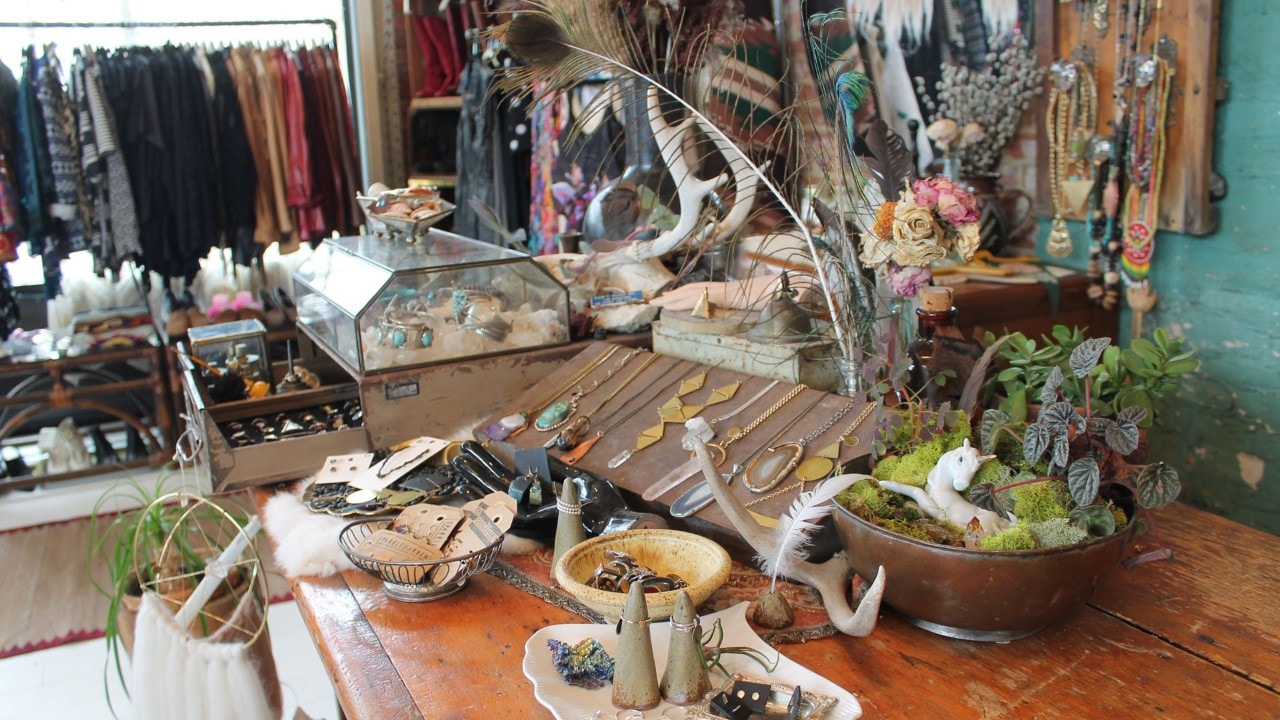
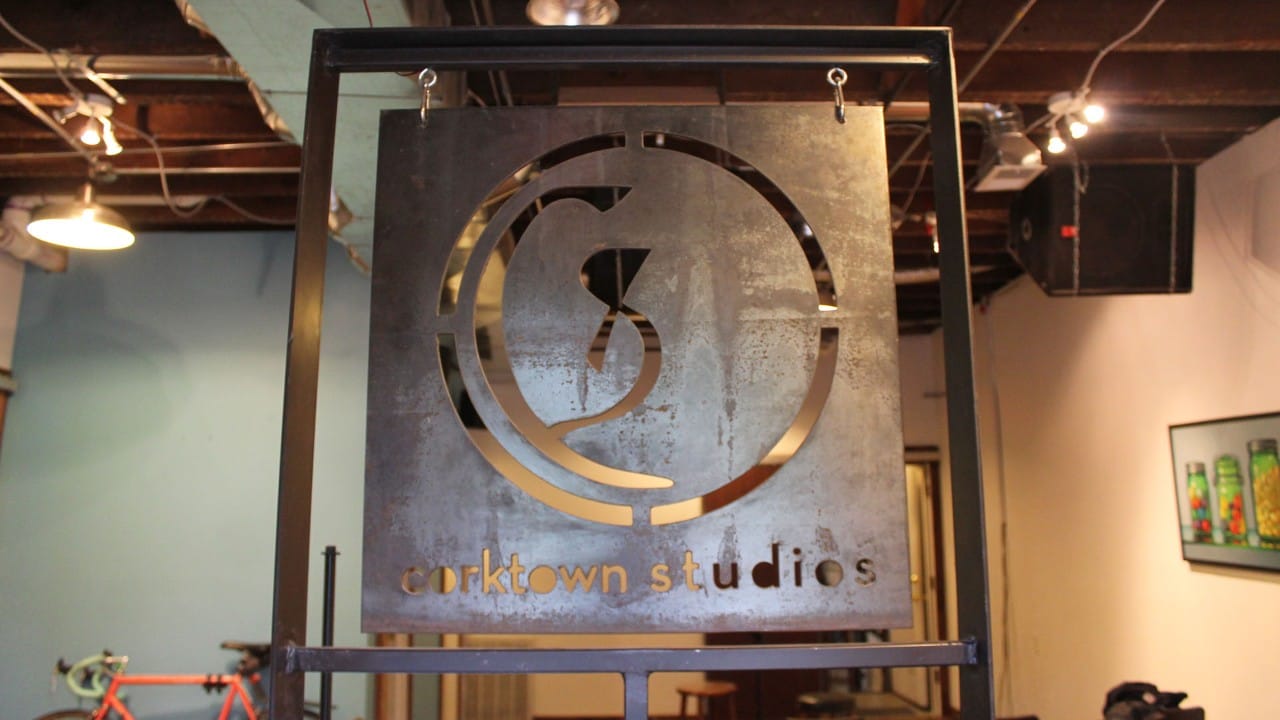
The logo of Corktown Studios’ artist collective.
Another space changing the landscape is Corktown Studios, an artist collective established in 2012 a bit off the beaten path from the main Michigan Avenue strip. It’s a two-story house that now includes nine resident artists, all working in various mediums. The space does eight gallery shows per year, with public openings and by-request visits, and also hosts concerts.
Alisyn Malek, a founding member of the collective, chose the location for its quiet but also its proximity to Corktown’s business district. They’ve done collaborations with specific events with other businesses; when the Two James Distillery opened, their artists provided the artwork hanging on its walls. Malek foresees some activity and construction, such as a restaurant, coming over to their area, which would provide the studio with more visitors. “Once we know there will be more traffic in the area, we’ll have more gallery hours,” she says, showing how local business can sustain and invigorate local culture.
That spirit is evident in every aspect of Corktown’s continued revitalization, as the neighborhood seeks to be defined less by the lack of Tiger Stadium than by its robust independent culture.
More Spots to Visit
If you’re only staying in Corktown briefly, it won’t be possible to eat everywhere that’s worthy of your calorie consumption. There’s no harm in trying, though, so here are some of the locals’ picks for must-hit spots. Choose wisely.
Astro Coffee is the neighborhood’s requisite craft coffee destination, but it also offers excellent pastries, sandwiches, and salads for your breakfast and lunch hankerings. Don’t miss the pourover coffee from a variety of American roasters (including the local Anthology Coffee), and definitely take a picture of the flower mural on its back wall.
Detroit City Bagels is where Eldorado General Store owner Erin Gavle loves to get a bacon, egg, and cheese sandwich to start the day.
Ottava Via, housed in a former bank, is a beautiful space for eating an Italian meal, including pizzas.
Gold Cash Gold is a sleek, modern restaurant that takes its cocktail program as seriously as its food, which is gorgeously plated and often locally sourced.
St. Cece’s is the spot for a bite of the hearty, pub variety (as well as a boozy brunch). Nearby you could also check out UFO Factory, a bar and music venue that’s home to a selfie-friendly bathroom and Laika Dog, which offers over-the-top veg and non-veg hot dogs. For brunch, they make waffle dogs.
Slows Bar BQ is the place that started it all for Corktown’s revitalization, and in the spirit of inclusion, you can even go here as a vegetarian, as their menu includes textured vegetable protein.
Across the street from Slows is Mercury Burger Bar, a contemporary diner-type spot with a ton of outdoor seating. Nearby is Rubbed, a sandwich and charcuterie spot with a funky vibe. Between stops at these, check out Detroit Artifactry for all your souvenir and trinket needs.
Related
Read mores stories about Michigan.
- Family Reunion in South Haven Michigan
- Things to do in South Haven, MI
- Top 4 Beaches in Michigan for Your Next Trip
- Isle Royale National Park
- Weekend Getaway to Corktown in Detroit
- Michigan Trips

